On a sunny day in July, Mona Gagnon, 54, sat at her kitchen table writing in her workbook provided by Literacy Volunteers Waterville Area. She focused on an exercise asking her to separate words into syllables and then rewrite them.
Howard Gagnon, her husband, leaned over her shoulder and waited for her to sound out the words.
“Can we skip it?” Mona said.
“No. Just sound it out,” Howard said.
Mona moved her lips and ran her finger under the word as she looked for ways to break it down.
“Thanks … thanks … thanksgiv … Thanksgiving,” she said, looking up at Howard, 56, before writing the word down in her book.
Three and a half years ago, Mona lost her memory after her medication was increased by one pill, according to Howard. Three days after the increase, she was taken out of their house on Gilman Street in Waterville on a stretcher.
“By the time we got to the hospital, she didn’t remember us,” Howard said. “Thirty-two years, gone.”
Mona not only lost her memory of her loved ones — her parents, siblings, husband and children — but also her memory of skills she had gained over the years, such as cooking, knitting and reading and writing.
About a year ago, one of Mona’s friends suggested she go to Literacy Volunteers to start learning how to read again. Now she’s up to a first-grade reading level, Howard said.
The nonprofit relies almost entirely on volunteer workers to provide adults and families free instruction in reading and writing that are necessary to procuring healthcare, shopping for groceries and other needed items, finding work and even driving.
In recent years, the student count for Literacy Volunteers Waterville Area has been rising. In 2015, 25 students were helped. That number jumped to 37 in 2016. By July 2017, the agency had helped 24 students with five months to go.
Eleven board members and 35 tutors keep the organization running along with office manager Danielle Boutin, the sole paid employee who works out of an office provided by the United Way of Mid-Maine.
The nonprofit sustained itself entirely through grants until this past year when representatives went to four towns to ask for municipal donations, receiving $2,500. It plans to ask for donations next year at each town it serves: Albion, Belgrade, Benton, Canaan, China, Clinton, Fairfield, Oakland, Pittsfield, Sidney, Smithfield, South China, Unity, Vassalboro, Waterville and Winslow.
“We thought it was a good idea to ask for their support,” said Janna Townsend, president of the board of directors for the local chapter.
With these funds, which are more consistent than grants, the organization plans to grow. Office hours are expanding from two part-time days to three part-time days, which provides more opportunities for those who need the services to call Boutin and schedule tutoring sessions. It also hopes to advertise more, Townsend said.
“It’s hard to reach people who can’t read,” Townsend said. “We can’t send out a notice. We can’t send out a newsletter.”
Television and radio advertising are more expensive options that are more within reach with the extra funds, along with creative posters that use more images than texts. Many of the organization’s clients also hear of its services through word-of-mouth and community referrals, Townsend said.
RECOVERING WHAT’S LOST
Mona Gagnon doesn’t remember, but Howard says she read all the time before her memory loss.
Now, she finds inspiration with her grandson, she said.
“He kept on asking me, ‘Mem, read it to me, Mem, read it to me,'” Mona said. “And I said, ‘No, I can’t.'”
Now, she’s reading to him again.
Once per week Mona meets with a tutor from the Literacy Volunteers, and twice each week she works with Howard, who took a training course to become a certified tutor.
“I had to learn the course in less than one week, but to help her out — I’d do anything for her,” he said.
If Literacy Volunteers wasn’t free, Howard said he and Mona wouldn’t have been able to afford it.
Literacy Volunteers provides a one-on-one program, where an adult works individually with a tutor to gain literacy skills, and a family literacy program, where tutors teach parents how to read to their children and help with schoolwork.
Even though it is a volunteer staff with completely free services, tutors are trained in teaching strategies and learning styles and offered ongoing professional development, Townsend said.
Townsend joined the program when she still lived in New York City where she worked for the public school system for 45 years, teaching elementary school and working in professional development for literacy programs.
When she retired, she moved to Maine, where she had summered in the Belgrade area, and became more involved with Literacy Volunteers.
“I felt like I really missed what I did, and I can translate all my skills here,” she said.
Her first student in the Waterville area program carried a “little black book” of vocabulary words he needed to know for work, she said. He was at a first-grade reading level, but had a supervisory job.
“Now, he’s completely on his own. He just sent me a forward of an email he sent to his son’s teacher,” Townsend said. “He struggled by himself for years with this little black book.”
Jennifer Lastella, a mother in Sidney, started using the tutoring services to help her daughter, Paytin, who was struggling with basic phonics.
“I didn’t know where to start and how to guide her,” Lastella, 38, said in an email.
After nearly a year using the family program, Lastella said Paytin, 8, completed second grade reading.
Lastella herself can now “help Paytin without frustration. I can explain problem solving skills with her.”
Another student was a 71-year-old man who came to the nonprofit because he couldn’t read his mail, Boutin, the office manager, said. His wife had read for him, but she had passed away. Literacy Volunteers discovered he had dyslexia but was never diagnosed while in school.
Others say they were “pushed through” school, have learning disabilities, dropped out, or have lived in situations where they struggled getting food to eat or places to sleep, Townsend said. “Reading is not foremost on their mind,” she said, when they have to deal with poverty and neglect.
A PATH TO PRODUCTIVITY
To break the cycle of poverty, adults and parents need to be able to read to their children, which is why adult literacy is an important issue, according to Iris Feinberg, associate director of the Adult Literacy Research Center at Georgia State University.
But there’s comparatively little data on adult literacy in the United States, partly because people use whether someone has a high school diploma as a measure of literacy.
The Program for the International Assessment of Adult Competencies, or PIAAC, did the most recent study on adult literacy with the Organization for Economic Co-operation and Development, or OECD. It looked at data in 33 countries in two rounds in 2012 and 2014. The United States scored 24 out of 33 countries in proficiency for literacy and numeracy.
About 18 percent of adults in the country had a low literacy level — slightly better than the OECD average, which was about 19 percent.
“In Georgia, we have about 865,000 people without a high school diploma, but if you apply PIAAC data, there are 1.2 million people with low literacy skills,” Feinberg said.
Using high school diploma data, Feinberg said the adult literacy rate in the country has stayed “about the same” over the years.
A study done between 1992 and 2003 supports that, showing that the literacy rate for adults stayed about level.
“Below basic” skills mean the adult is either illiterate in English or has the most simple skills that allow them to sign forms or figure out what to drink before a medical test. “Basic” skills mean adults can perform simple literacy tasks like understanding information in a simple document, such as a television guide or pamphlet.
In 2003, the below basic skill rate had stayed the same and the basic skill rate had increased to 29 percent.
In Maine in 1992, 13 percent of adults lacked basic literary skills, which was halved to 7 percent — or more than 91,000 people — by 2003, according to the National Assessment of Adult Literacy. The numbers are the same for Kennebec County.
One long-term federally funded study done by a professor at Portland State University in Oregon followed students over a 10-year period from 1998 to 2007.
It found that those with low literacy skills who took part in adult basic skills programs saw economic improvements over the 10 years. Those who took part in the program saw a 53 percent increase in mean income, while those who didn’t saw a 2 percent drop. Their literacy skills also improved, while those not in the program showed little to no growth.
While this study shows positive results, it is the only data available.
Most of the reasons for illiteracy that Feinberg names are what Townsend and her volunteers in the Waterville area see — people with undiagnosed disabilities, people who dropped out of school, people who lived in poorer neighborhoods with poorer schools.
But they also see the successes of their program in Mona Gagnon, Jennifer Lastella and the supervisor with his black book and they are aiming for more.
Madeline St. Amour — 861-9239
mstamour@centralmaine.com
Twitter: @madelinestamour
Copy the Story LinkSend questions/comments to the editors.


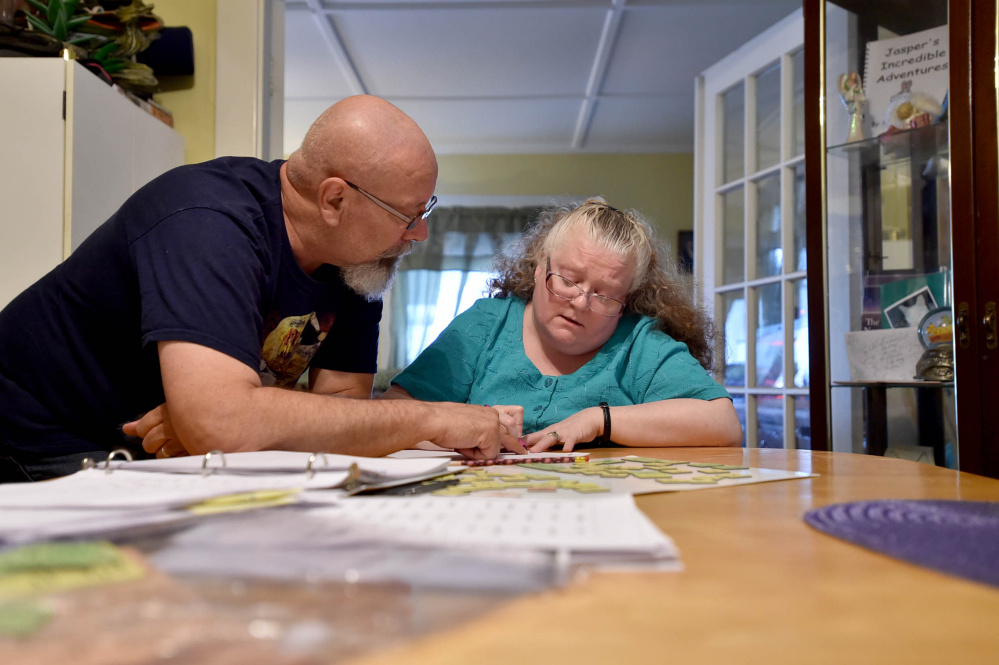
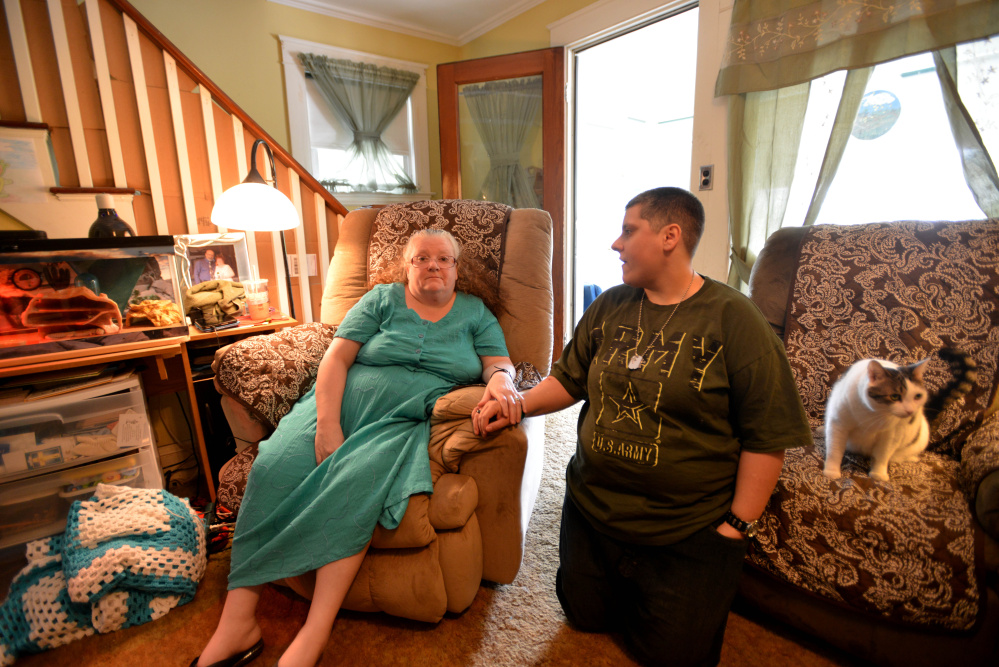
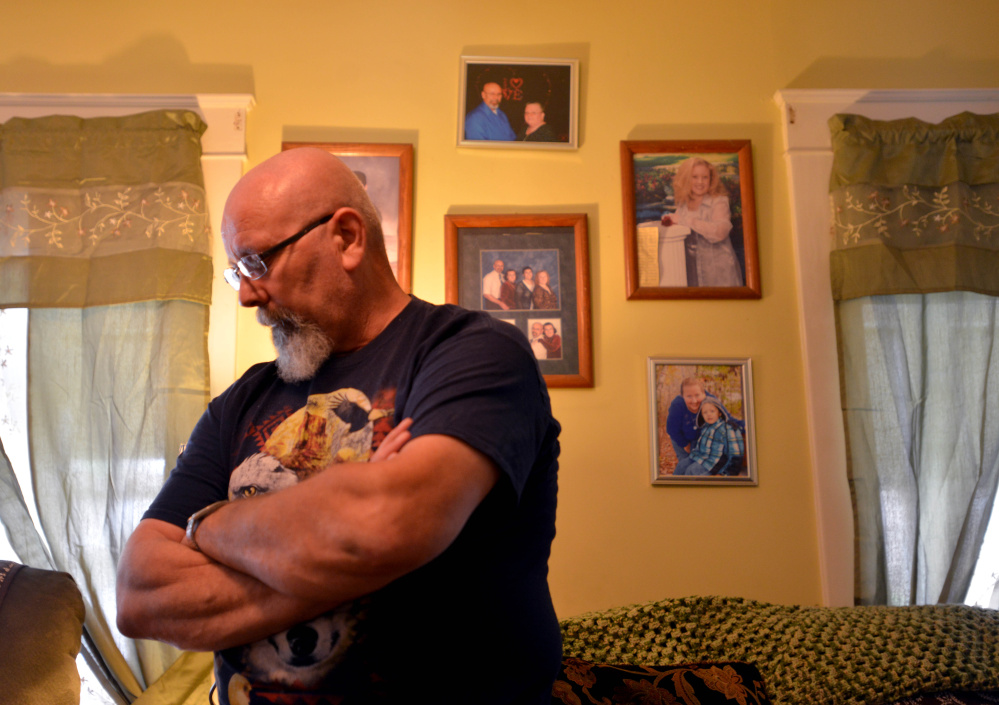
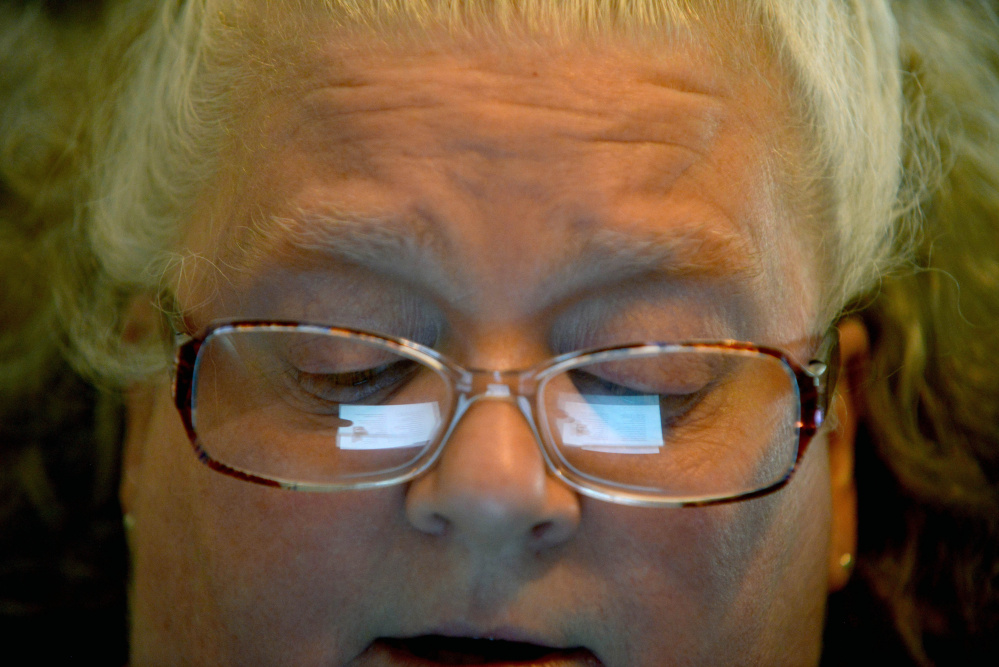

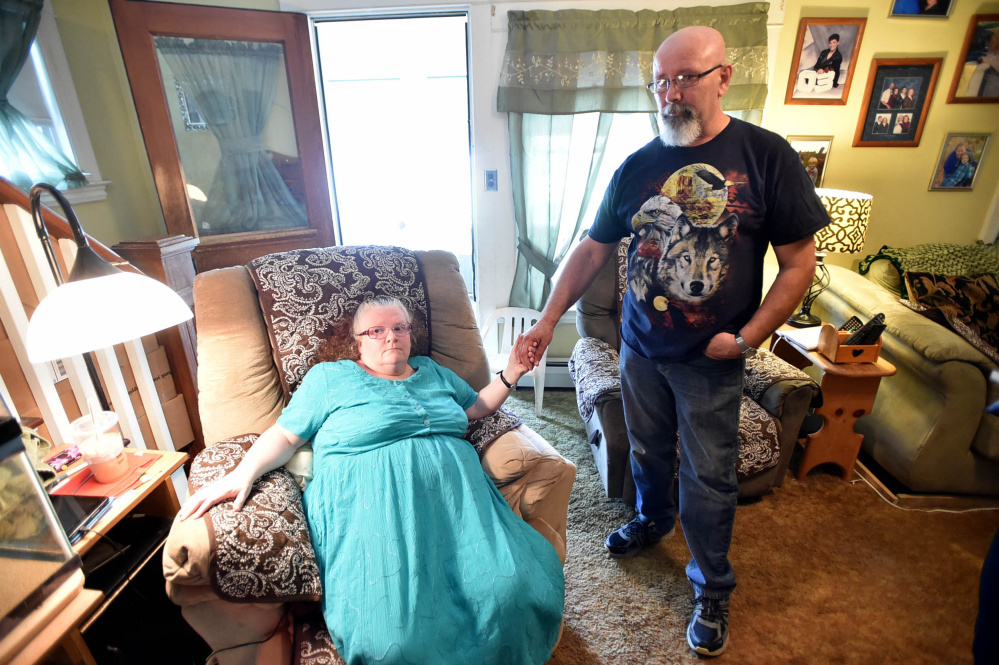
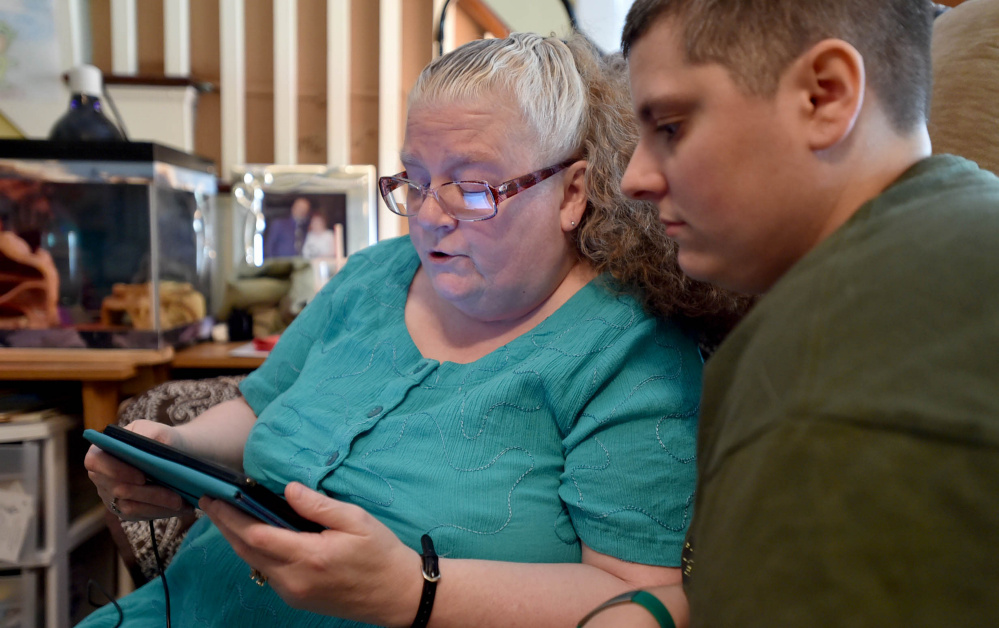



Success. Please wait for the page to reload. If the page does not reload within 5 seconds, please refresh the page.
Enter your email and password to access comments.
Hi, to comment on stories you must . This profile is in addition to your subscription and website login.
Already have a commenting profile? .
Invalid username/password.
Please check your email to confirm and complete your registration.
Only subscribers are eligible to post comments. Please subscribe or login first for digital access. Here’s why.
Use the form below to reset your password. When you've submitted your account email, we will send an email with a reset code.